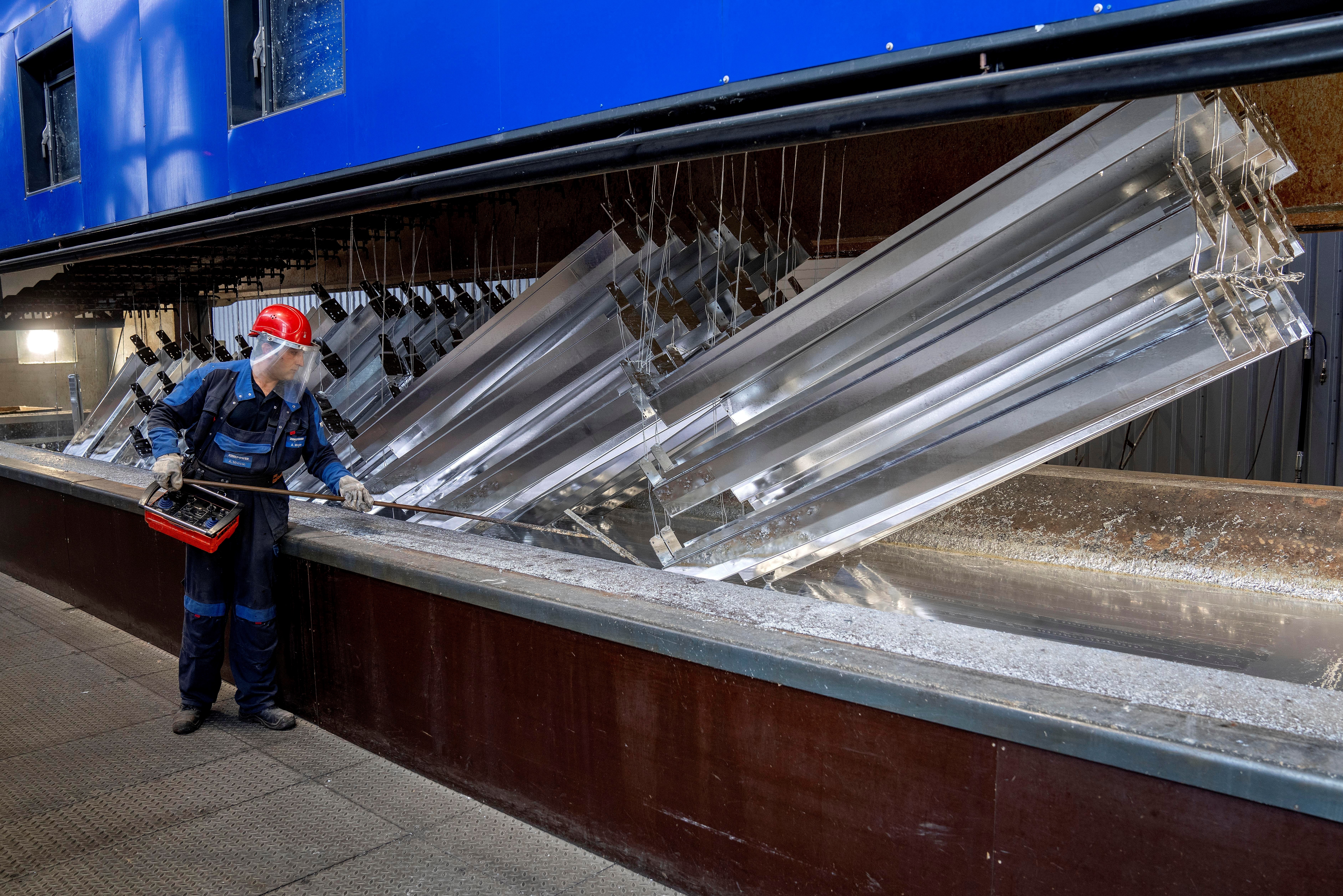De-industrialization in the EU underway: Politico
Competitivity within the European continent is starting to fade out to levels so low that they may be hinting to initial signs of deindustrialization.
-

A worker moves metal pieces that are hot-dip galvanized in the Zinkpower galvanizing company in Meckenheim, Germany, Thursday, Aug. 18, 2022 (AP Photo/Michael Probst)
A report published by Politico on Monday revealed that the EU has begun to sense the signs of a process of de-industrialization due to high energy prices.
Some of Europe's crucial manufacturing sectors affected by the crisis include glass, chemicals, metals, fertilizer, pulp and paper, ceramics, and cement sectors.
The report states that EU officials have raised concerns over the possibility of manufacturers relocating toward more cost-effective production spaces such as the US - where green subsidy programs have enabled access to subsidies for producers who deploy green technologies for production.
And with ever-growing competition from China, competitiveness within the European continent is starting to fade out to levels so low that they may be hinting to initial signs of deindustrialization.
According to an email sent by European Internal Market Commissioner Thierry Breton to his staffers on the occasion of the new year, the official told them that Europe's global competitiveness was currently a "top priority".
"High energy prices in Europe will continue to affect our fellow citizens, but also entire industrial supply chains and [small and medium-sized businesses]," Breton wrote. "At the same time, China, the US and other countries are trying — not without success — to attract our industrial capacities."
"Without a strong manufacturing base,” Breton said, adding that "Europe’s security of supply, export ability, and job creation is at risk."
Read more: Activists sue UK government over new coal mine
Last month, European statistics revealed that gas consumption for manufacturing purposes was slashed by 15% continent-wide.
With gas prices four times that of the US and six times higher than they were before, several industries are considering the option of relocating abroad for cheaper energy prices.
US President Joe Biden's Inflation Reduction Act (IRA) has certainly been a source of fear for European officials who are forecasting a possible trade war ahead of the bill.
"Given the actions of the U.S. and China, we see the real danger of deindustrialization and disinvestment," a senior European Commission official told Politico.
The general secretary of the IndustriALL European Trade Union, Luc Triangle, said that the loss of these vital sectors could result in a massive wave of layoffs - and this implicates serious "political consequences".
"We are not exaggerating when we say that European industry — starting with the energy-intensive industries on the frontline — is facing an existential crisis," Triangle said, noting that thousands of jobs are likewise at stake.
In a list of job losses published last month by Eurofound foundation, 441 layoffs were recorded at an aluminum oxide producer in Romania, 300 at a plant in Slovakia, and 350 at a ceramic tiles manufacturer in Poland.
"There are political consequences," Triangle said. "Which parties are going to win, thriving on the dissatisfaction and disappointment? The parties that have an anti-European agenda, or an extremist agenda."
Read more: US trade subsidies approach with Europe unfair, Macron insists
The EU has already imposed nine waves of unprecedented anti-Russia sanctions since the start of the Ukraine war in February, including targeting Russian key energy exports.
After the adoption of several packages of sanctions against Moscow by the West, the sanctions backfired, having detrimental effects on the world's global markets, most notably gas and oil.
European governments are now suffering the repercussions of their sanctions amid rising strikes and protests over the cost of living and pay.
Sanctions against Russia were intended to punish the Russian economy by isolating it from the rest of the world.
But several countries around the globe, including Europe, continued to carry out trade activities with Russia over the past year.
Earlier today, it was reported that Russia's oil and gas revenues increased by 28%, amounting to 2.5 trillion rubles ($36.7 billion).
In 2022, Russia's oil production increased by 2% reaching 535 million tonnes, while overall exports rose by 7%.
See this: EU sanctions on Russia have zero effect

 4 Min Read
4 Min Read








